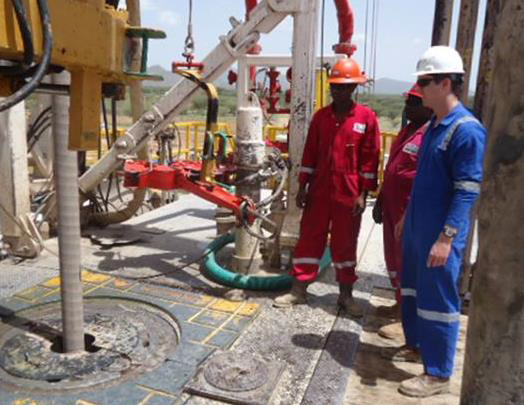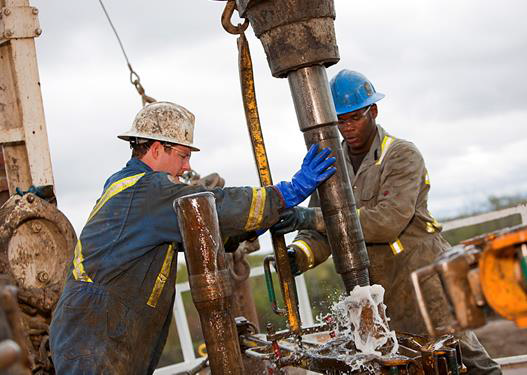COURSE OVERVIEW
DE0170 : Pressure Transient Analysis and Practice

OVERVIEW
| COURSE TITLE | : | DE0170 : Pressure Transient Analysis and Practice |
| COURSE DATE | : | Dec 08 - Dec 12 2024 |
| DURATION | : | 5 Days |
| INSTRUCTOR | : | Mr. Jamal Khaled |
| VENUE | : | Dubai, UAE |
| COURSE FEE | : | $ 8000 |
| Register For Course Outline | ||
OTHER SCHEDULED DATES
| Date | : | Jul 01 - Jul 05 (5 Days) | Location | : | Abu Dhabi, UAE | Classroom Fee (US$) | : | $ 5500 | Course Info |
| Date | : | Jul 15 - Jul 19 (5 Days) | Location | : | Abu Dhabi, UAE | Classroom Fee (US$) | : | $ 8000 | Course Info |
| Date | : | Aug 04 - Aug 08 (5 Days) | Location | : | Dubai, UAE | Classroom Fee (US$) | : | $ 5500 | Course Info |
| Date | : | Sep 16 - Sep 20 (5 Days) | Location | : | Abu Dhabi, UAE | Classroom Fee (US$) | : | $ 8000 | Course Info |
| Date | : | Oct 20 - Oct 24 (5 Days) | Location | : | Dubai, UAE | Classroom Fee (US$) | : | $ 5500 | Course Info |
| Date | : | Nov 03 - Nov 07 (5 Days) | Location | : | Dubai, UAE | Classroom Fee (US$) | : | $ 8000 | Course Info |
| Date | : | Dec 09 - Dec 13 (5 Days) | Location | : | Abu Dhabi, UAE | Classroom Fee (US$) | : | $ 5500 | Course Info |
Course Description
The pressure transient test is one of the more important tools for evaluating reservoir performance. By measuring the change of pressure over time, pressure transient information is obtained. The method entails measuring flow rates and pressures under a range of flowing conditions and applying the data to a mathematical model. Fundamental data relating to the interval under test, such as reservoir height and details of the reservoir fluids, are also part of the input.
In many cases, wells and reservoirs were managed according to the data based on pressure transient tests. However, as the quality of information obtained from a pressure transient test depends, among other things, on the quality of the pressure and flow data, it is imperative to prevent inaccuracy in the pressure and flow measurements to assure integrity of data. At present, conventional pressure transient testing methods have been adapted in the petroleum industry. These methods provide useful general indicators of reservoir permeability, the flow capacity of the reservoir and any damage that may be restricting productivity.
The pressure transient test is one of the more important tools for evaluating reservoir performance. By measuring the change of pressure over time, pressure transient information is obtained. The method entails measuring flow rates and pressures under a range of flowing conditions and applying the data to a mathematical model. Fundamental data relating to the interval under test, such as reservoir height and details of the reservoir fluids, are also part of the input.
In many cases, wells and reservoirs were managed according to the data based on pressure transient tests. However, as the quality of information obtained from a pressure transient test depends, among other things, on the quality of the pressure and flow data, it is imperative to prevent inaccuracy in the pressure and flow measurements to assure integrity of data. At present, conventional pressure transient testing methods have been adapted in the petroleum industry. These methods provide useful general indicators of reservoir permeability, the flow capacity of the reservoir and any damage that may be restricting productivity.
link to course overview PDF
In many cases, wells and reservoirs were managed according to the data based on pressure transient tests. However, as the quality of information obtained from a pressure transient test depends, among other things, on the quality of the pressure and flow data, it is imperative to prevent inaccuracy in the pressure and flow measurements to assure integrity of data. At present, conventional pressure transient testing methods have been adapted in the petroleum industry. These methods provide useful general indicators of reservoir permeability, the flow capacity of the reservoir and any damage that may be restricting productivity.
The pressure transient test is one of the more important tools for evaluating reservoir performance. By measuring the change of pressure over time, pressure transient information is obtained. The method entails measuring flow rates and pressures under a range of flowing conditions and applying the data to a mathematical model. Fundamental data relating to the interval under test, such as reservoir height and details of the reservoir fluids, are also part of the input.
In many cases, wells and reservoirs were managed according to the data based on pressure transient tests. However, as the quality of information obtained from a pressure transient test depends, among other things, on the quality of the pressure and flow data, it is imperative to prevent inaccuracy in the pressure and flow measurements to assure integrity of data. At present, conventional pressure transient testing methods have been adapted in the petroleum industry. These methods provide useful general indicators of reservoir permeability, the flow capacity of the reservoir and any damage that may be restricting productivity.
TRAINING METHODOLOGY
This interactive training course includes the following training methodologies as a percentage of the total tuition hours
LecturesWorkshops & Work Presentations
Case Studies & Practical Exercises
Videos, Software & Simulators
In an unlikely event, the course instructor may modify the above training methodology before or during the course for technical reasons.
VIRTUAL TRAINING (IF APPLICABLE)
If this course is delivered online as a Virtual Training, the following limitations will be applicable
| Certificates | : | Only soft copy certificates will be issued to participants through Haward’s Portal. This includes Wallet Card Certificates if applicable |
| Training Materials | : | Only soft copy Training Materials (PDF format) will be issued to participant through the Virtual Training Platform |
| Training Methodology | : | 80% of the program will be theory and 20% will be practical sessions, exercises, case studies, simulators or videos |
| Training Program | : | The training will be for 4 hours per day starting at 09:30 and ending at 13:30 |
| H-STK Smart Training Kit | : | Not Applicable |
| Hands-on Practical Workshops | : | Not Applicable |
| Site Visit | : | Not Applicable |
| Simulators | : | Only software simulators will be used in the virtual courses. Hardware simulators are not applicable and will not be used in Virtual Training |
RELATED COURSES

DE0172 : PTA/RTA Advanced
- Date : Dec 16 -Dec 19 / 3 Days
- Location : Dubai, UAE
- Course Details Register

DE0184 : Directional Drilling, Horizontal and Sidetracking
- Date : Nov 18 -Nov 21 / 3 Days
- Location : Dubai, UAE
- Course Details Register

DE0638 : Advanced Geology
- Date : Nov 18 -Nov 21 / 3 Days
- Location : Dubai, UAE
- Course Details Register

DE0090 : Reservoir Management and Monitoring
- Date : Dec 22 -Dec 26 / 3 Days
- Location : Doha, Qatar
- Course Details Register
